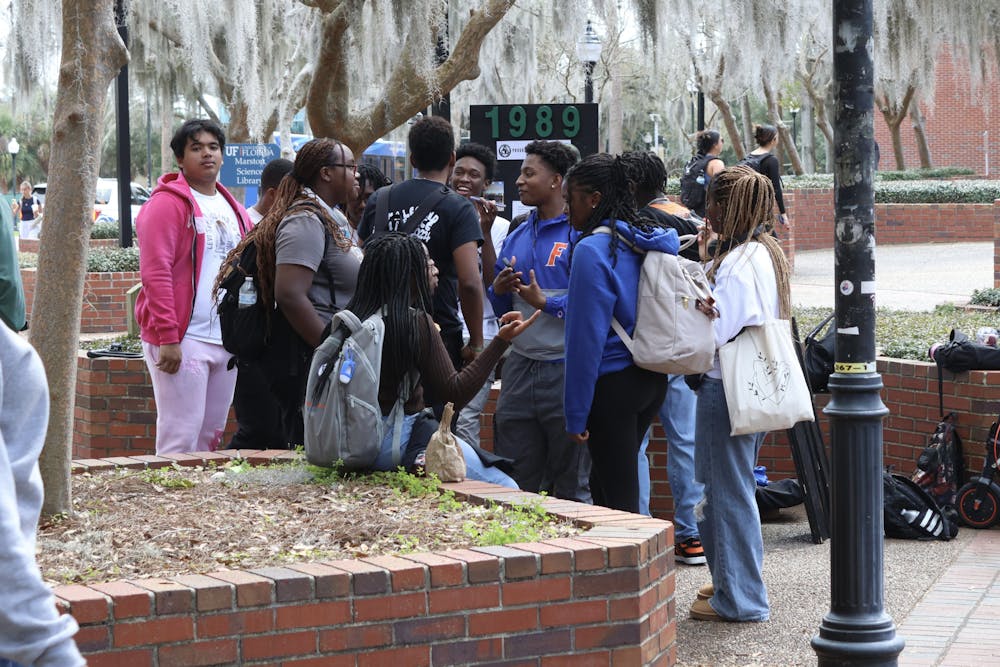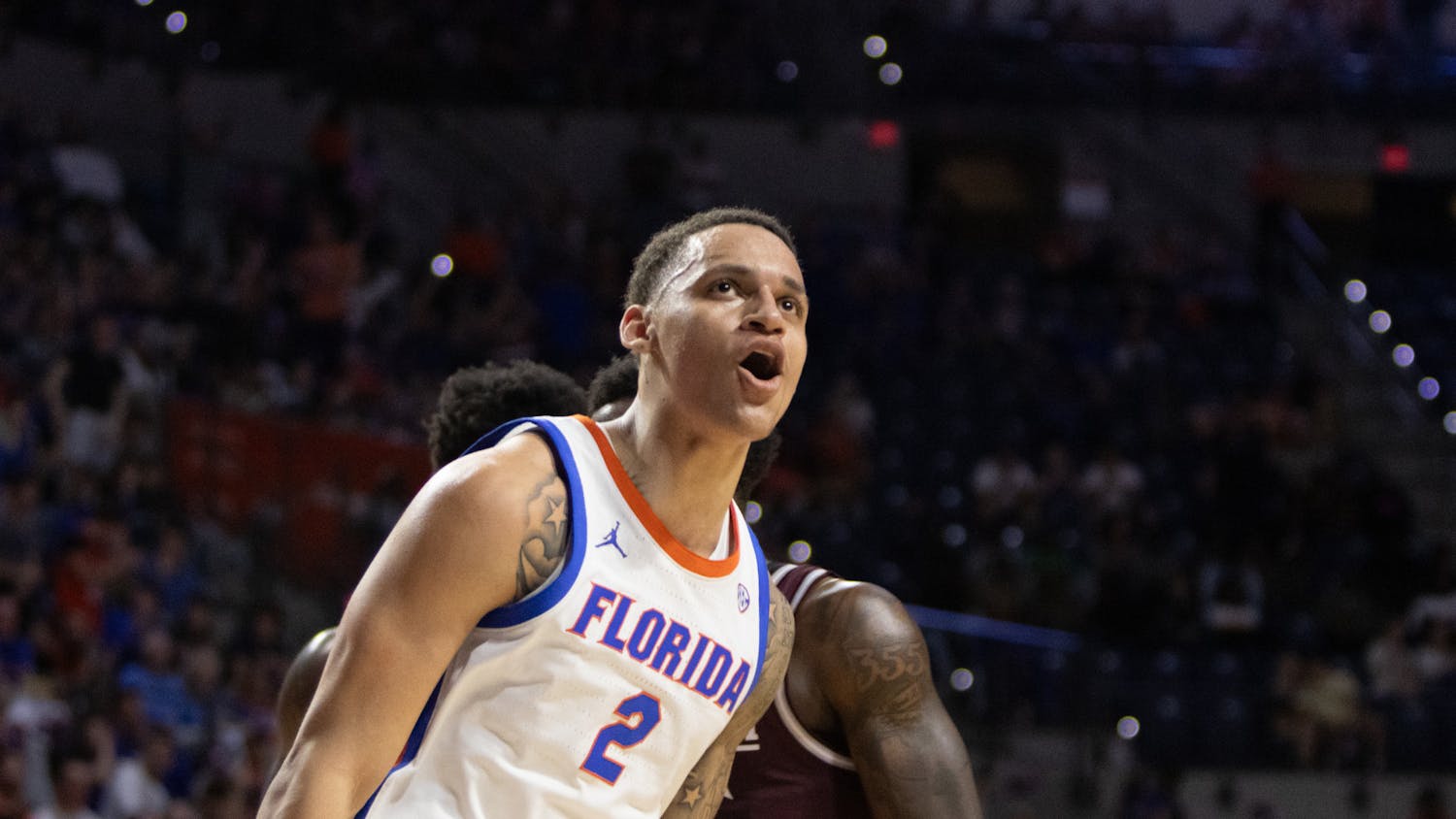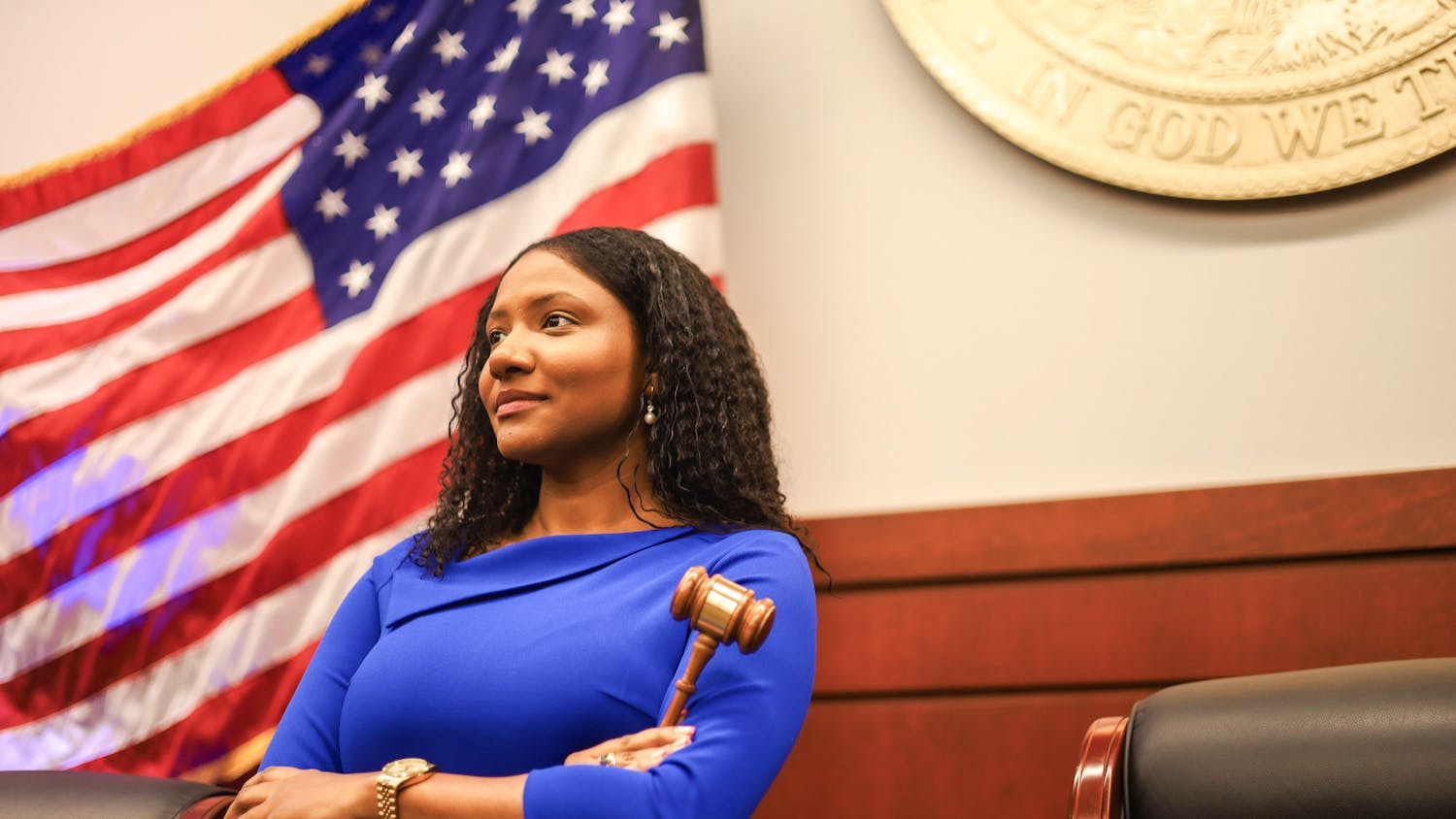David Canton, UF director of African American studies, calls it the “eyeball test.”
“Just look in the classrooms,” he said. “I just left my colleague’s class — one black male in there. I think in my class, I have one.”
In Fall 2022, about one-third of Black UF undergraduates identified as male, and just 38% of Black applicants were male. Both the enrollment and applicant gender gaps are larger for Black students than any other racial or ethnic group at UF.
The gap echoes a national trend affecting not just predominantly white institutions like UF, where Black students make up 5% of undergraduates, but historically Black colleges and universities as well.
At Florida A&M University, the only HBCU in the Florida state university system, 34% of students were male in Fall 2021. The percentage has steadily declined over the past 20 years.
Obstacles begin in K-12 education
The Black gender gap in higher education is a systemic problem requiring systemic solutions, said Canton, who took over the university’s African American studies department in 2020.
But no one wants to address the challenges facing young Black men as a whole — like higher suspension rates, low teacher expectations and mass incarceration, he said.
Instead, they accuse individual students of hampering their own success by listening to hip-hop music or having tattoos, he said.
“If we pull hip-hop tomorrow, the gaps are still going to be there,” he said. “If 50 Cent went off this Earth, if we pulled the whole hip-hop industry out, we’re going to have the same conversation next year.”
Finances cause some hesitations toward college, he said. Students don’t want to rack up six figures of debt for a degree when more and more careers are opening up to people, especially men, without one — like construction work or military enlistment, he said.
Distaste for intellectualism also plays a role, Canton said. No one in the U.S. likes an “egghead,” and youth often view academics as pretentious, elitist and condescending, he said.
But much of the problem comes not from students’ attitudes, but from their teachers’ attitudes toward them, he said. Teachers and advisors often write off hard working Black male students merely because they’re offended by the students’ sagging pants or “attitudes,” he said.
Black male students can’t make autonomous career decisions when teachers assume they don’t want to go to college and “end the game” for them before it begins, he said.
Teachers enforce racial stigmas by labeling Black students more “blameworthy” for misbehaving in the same ways as their white peers, said Yale Assistant Professor Jayanti Owens.
Owens analyzed videos of over 1,300 middle and high school U.S. teachers for an American Sociological Association article on discipline disparity gaps published November 2022. She studied how teachers responded to videos shown of identical misbehaviors — like throwing pencils across the room or texting during class — depending on the students’ race.
When teachers saw a Black student misbehave, they assumed the student wasn’t interested in school or didn't respect authority, she said. When a white student misbehaved, the teacher more often concluded they were having a bad day or acting out as a “cry for help,” Owens said.
A student being Black increased the probability the teacher recommended sending them to the principal’s office. Both Black and white students were also more likely to be blamed for misbehavior if they attended predominantly minority schools, Owens said.
“You could literally be the exact same student,” she said. “If you do a certain routine misbehavior in a school that's predominantly Black and Brown students, you are more likely to be seen as blameworthy for that behavior and more likely to get referred to the principal's office.”
‘It was one of the first things I noticed’: the on-campus perspective
Joel Ledgister, a 19-year-old UF philosophy and criminology sophomore, notices the Black gender imbalance in his classes, around campus and even in his student involvement groups, he said.
Ledgister is a member of Progressive Black Men, Inc., a student group that fights racial stereotypes through academics, fellowship and service. His PBM class had 11 students, while the group’s sister organization, SISTUHS, Inc., had 33 students the same year, he said.
“As Black men, we're more prone to do other things than college — it’s not really instilled in us,” he said. “I had a sister and they would instill that in her, but not in me.”
Low enrollment ties into institutional racism that affects Black male students long before they step foot on campus, said Joshua Thomas, a 20-year-old UF political science junior.
Watching the HBO series “The Wire” in one of his classes taught him many Black men were taken away from their families in the late 1900s, the effects of which his generation still feels today, he said.
“People make jokes about it, how there’s a lot of girls and no guys,” he said. “But I do think there’s a lot of different things, systemically, that have just been pre-conceived before I got here.”
The imbalance hasn’t kept him from feeling involved at UF, Thomas said. Rather, being part of a smaller group encourages the Black community to respect what they have and stay involved with each other, he said.
Jameson Jean-Charles, an 18-year-old UF health sciences freshman, notices the gap but doesn’t feel one way or another about how it’s impacted his college experience, he said. In the area he grew up in Orlando, girls were “expected” to take education more seriously than guys, he said.
“It starts in the household,” he said. “How they’re raised, what perspective they see.”
Male students aren’t the only ones to pick up on female enrollment dominance. The lack of Black men was “one of the first things” Jehlia Andrew-Brown, a 21-year-old UF psychology and African American studies junior, noticed after starting college, she said.
Though the leadership Andrew-Brown sees among Black men at UF astounds her, she’s disheartened that there aren’t more of them, she said.
Andrew-Brown chose to apply to UF because of its strong Black community after bumping into some Black students during her tour who told her about resources like the Black Student Union, she said. But the university still fails sometimes to make its Black students feel safe, she said.
“Do better,” she said. “Because we are doing our part to not only get more black students here, to have a bigger impact on campus. So we just need a little reciprocation.”
Diversity outreach has positive impact but unclear future
Until his early 30s, Terrell Jenkins had no goals associated with higher education. He started skipping class in kindergarten and enrolled in the Marines immediately after high school. But when he met a man who pointed him to Santa Fe College, he decided to give school another try.
Jenkins went on to earn a bachelor’s degree in public relations from UF. Now, he’s found his calling helping others reach post-secondary education through the K-12 outreach program Santa Fe Achieve, where he works as a specialist mainly at Hawthorne High School.
Most students don’t come to him for financial guidance, Jenkins said. Instead, they worry about fitting in on campus or how their interests can translate to a career. About 90% of his job is to be a “motivational speaker” and open these students’ eyes to their own potential, he said.
“So many people live less than, and it’s not because of themselves,” Jenkins said. “It’s the things externally that make us feel we’re not good enough, or we’re not whatever enough, and I just don’t like my brothers and sisters in the world going around feeling that way.”
Financial concerns are real barriers for some high schoolers, said Program Director Quentin Eyman. But for many students, especially minority students, “perceived” barriers, like not knowing where to start or not having supportive role models, also play a part, he said.
“Any group also is looking for role models. They're looking for people that look and sound like them,” Eyman said. “You have students who may have decided that a road to college isn’t for them, being able to see people who have gone down that road.”
UF political science professor and former director of African American studies Sharon Austin wants to see more outreach from the university toward predominantly Black high schools and organizations, she said.
Over her 20 years at UF, she’s seen the gender gap among Black students grow. But over the past two years, she’s seen the resources to fight it, including outreach programs, threatened by Florida anti-diversity legislation.
“The few diversity organizations that were there are now at risk of being eliminated because we want a ‘colorblind’ approach,” she said. “But we don't live in a colorblind society.”
Florida banned universities from spending state funding on diversity programs in a January regulation. An audit ordered by the state last year identified K-12 outreach initiatives in the UF veterinary and engineering colleges as diversity-related programs.
Opportunities for Black men at UF can only expand through outreach and discussion, Austin said. But with race-based diversity initiatives an “elephant in the room” at best and facing shutdowns at worst, she’s not sure when those conversations will happen.
Contact Zoey Thomas at zthomas@alligator.org. Follow her on X @zoeythomas39.

Zoey Thomas is a UF media production senior and the Spring 2026 editor-in-chief of The Alligator. She has previously been data editor and engagement managing editor, as well as a reporter for three semesters. She was also a intern at the Orlando Sentinel. In her sparse free time, Zoey enjoys reading a good book, going for a run or waking up her roommates with the sound of her espresso machine.






